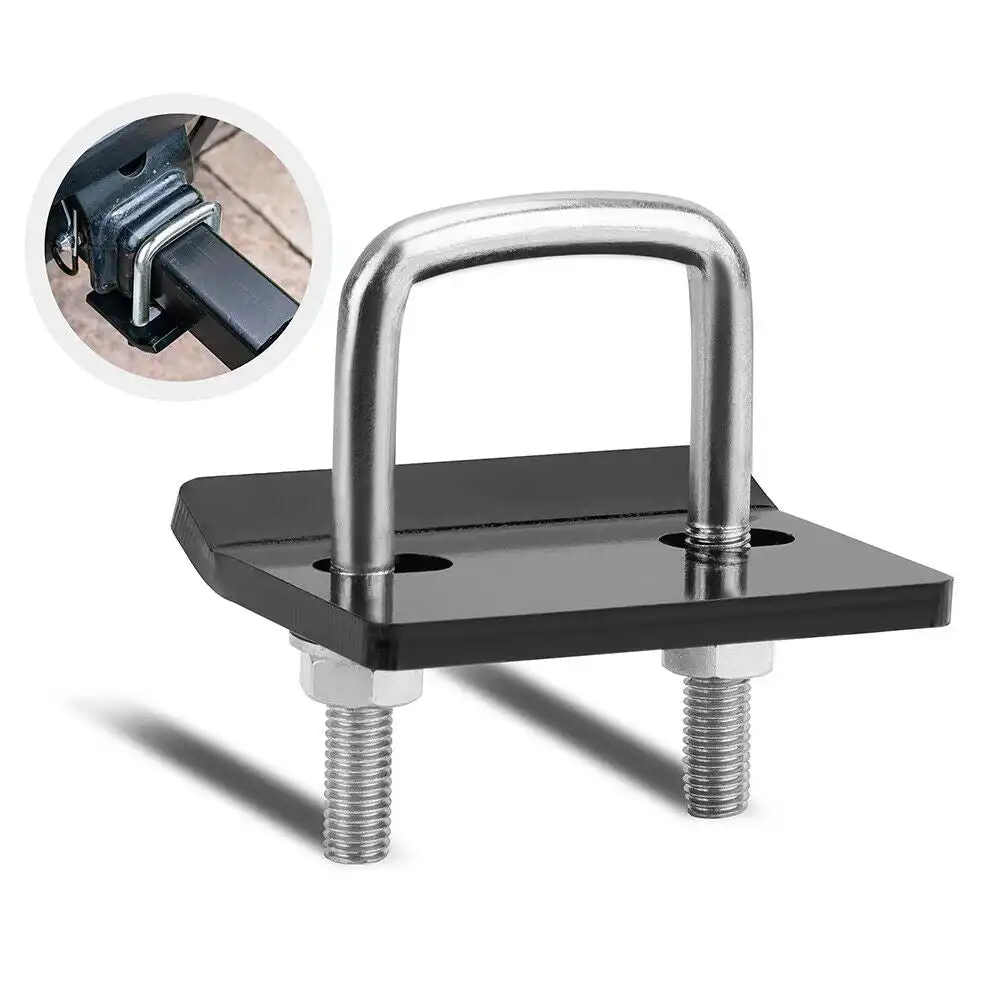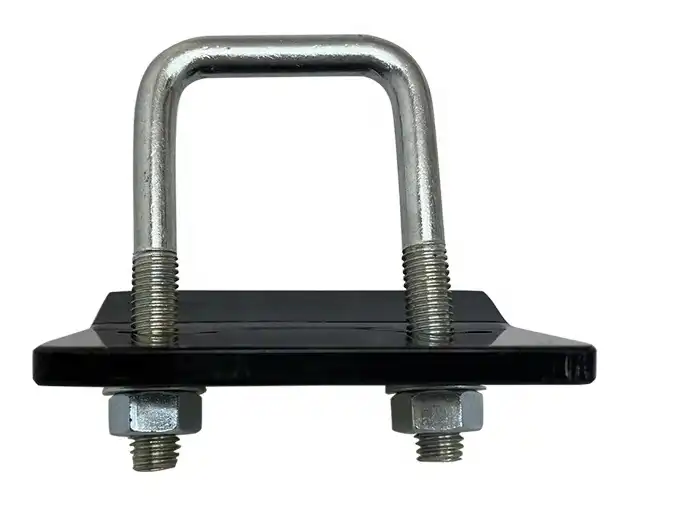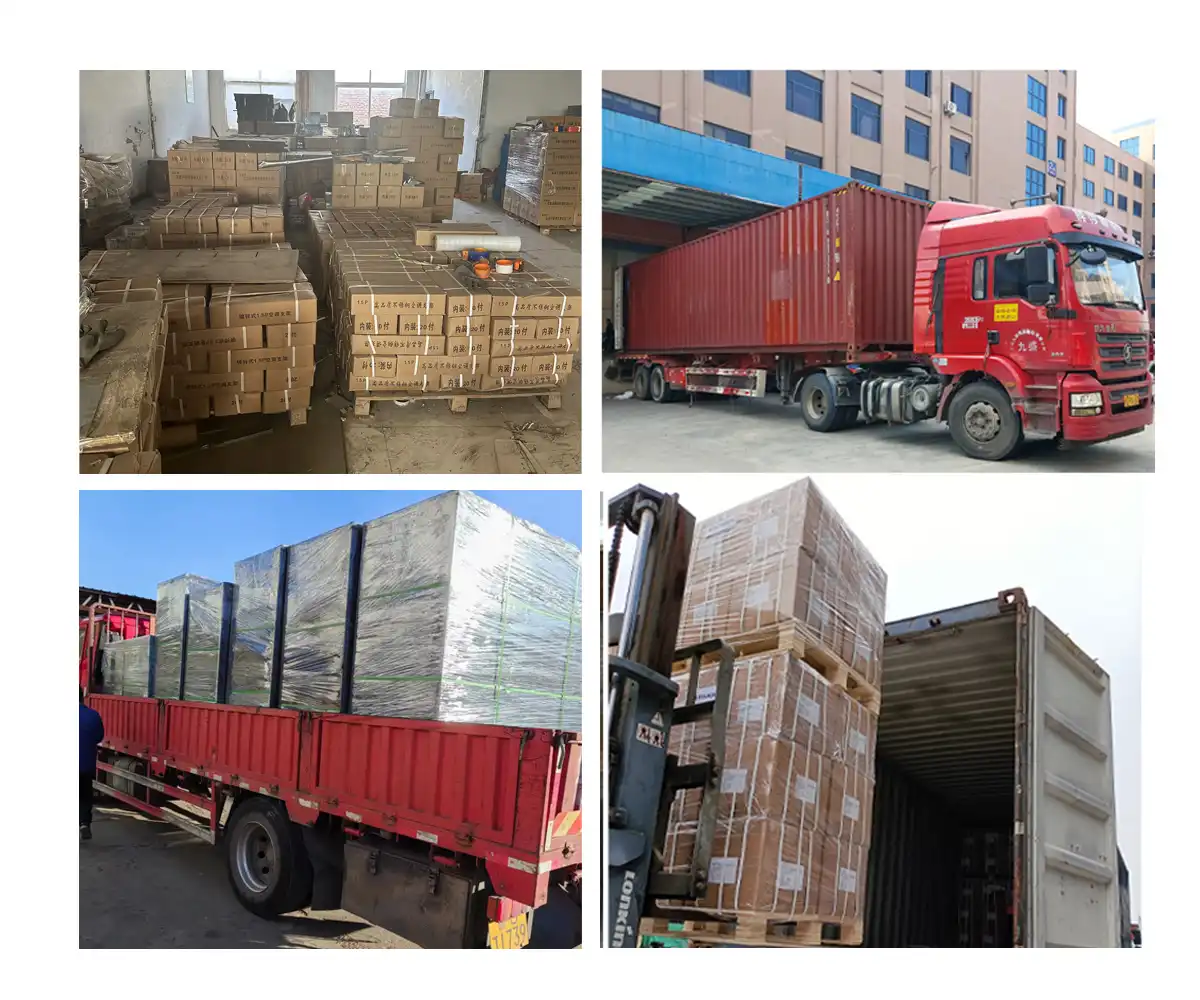Why Hitch Tightener Is a Must-Have for Every Towing Trip?
2025-09-16 10:44:45
When planning any towing adventure, whether hauling a boat to the lake or transporting cargo across states, ensuring a secure connection between your vehicle and trailer is paramount. The answer to why a Hitch Tightener is essential lies in its ability to eliminate dangerous play, reduce noise pollution, and enhance overall towing stability. This crucial safety device reduces noise and improves towing stability by securely tightening your hitch, preventing any rattling or clanking sounds during towing. Professional towing operators and recreational enthusiasts alike understand that investing in quality hitch tightening solutions transforms potentially hazardous journeys into smooth, controlled experiences while protecting both vehicle and trailer from unnecessary wear.

Essential Safety Benefits That Transform Your Towing Experience
Eliminating Dangerous Play and Movement
The primary safety concern in any towing operation stems from excessive movement between the hitch receiver and ball mount assembly. A properly installed Hitch Tightener addresses this critical issue by creating a rock-solid connection that prevents potentially catastrophic failures during transport. When manufacturers design trailer hitches, they must account for various ball mount sizes, resulting in slight clearances that can become problematic over time. These gaps, while necessary for installation, create opportunities for movement that can escalate into dangerous situations, particularly during emergency braking or evasive maneuvers. Professional towing applications require absolute reliability, and by securely tightening the hitch, it significantly reduces the sway and movement of your trailer, providing a safer and more stable towing experience. The engineering behind modern hitch tightening systems focuses on distributing load forces evenly across the connection point, preventing stress concentrations that could lead to component failure. Advanced manufacturing techniques employed by companies like Qingdao RUIRUI Machinery ensure that each Hitch Tightener meets stringent quality standards, utilizing high-strength steel construction and precision machining to deliver consistent performance under demanding conditions. The physics of towing stability become increasingly complex as load weights and speeds increase. Without proper hitch tightening, micro-movements compound over time, creating wear patterns that compromise the integrity of both the hitch receiver and ball mount. Professional fleet operators understand that investing in quality Hitch Tightener systems significantly reduces maintenance costs while improving operational safety margins. The cost-effectiveness of preventing premature component wear far outweighs the initial investment in professional-grade tightening solutions.
Preventing Catastrophic Connection Failures
Connection integrity represents the most critical aspect of safe towing operations, where failure isn't just inconvenient but potentially life-threatening. A high-quality Hitch Tightener serves as the primary defense against separation events that could result in runaway trailers, property damage, or personal injury. The engineering principles behind effective hitch tightening focus on creating mechanical advantages that maintain consistent clamping forces despite vibration, temperature variations, and dynamic loading conditions encountered during normal operation. Manufacturing standards for professional-grade Hitch Tightener units require extensive testing under simulated real-world conditions. Companies like Qingdao RUIRUI Machinery, with their ISO 9001 certified quality management systems, implement rigorous testing protocols that validate performance across temperature ranges, vibration frequencies, and load cycling that exceed typical service conditions. Their advanced manufacturing capabilities, including progressive stamping and precision machining, ensure dimensional accuracy that translates directly into reliable field performance. The metallurgy of modern Hitch Tightener construction incorporates corrosion-resistant treatments and heat-treating processes that maintain mechanical properties throughout extended service life. Professional applications demand reliability measured in decades rather than seasons, requiring materials science approaches that consider fatigue resistance, environmental exposure, and maintenance accessibility. The investment in quality manufacturing processes, from initial steel selection through final surface treatments, directly impacts long-term reliability and user safety.
Reducing Driver Fatigue Through Enhanced Control
Driver fatigue during extended towing operations significantly increases accident risks, making any technology that reduces driver workload a valuable safety investment. A properly functioning Hitch Tightener eliminates the constant micro-corrections required to maintain straight-line tracking when loose connections create unpredictable trailer behavior. Professional drivers understand that reducing steering input requirements during long-distance hauling directly correlates with improved safety margins and reduced operator fatigue. The biomechanical aspects of towing control become particularly important during extended trips where cumulative stress affects decision-making capabilities. When hitch connections exhibit excessive play, drivers unconsciously compensate through increased grip pressure, more frequent steering corrections, and heightened attention levels that accelerate mental fatigue. Quality Hitch Tightener systems eliminate these compensation behaviors by providing predictable, stable trailer tracking that allows drivers to maintain relaxed control postures throughout their journey. Advanced manufacturing techniques employed in professional-grade Hitch Tightener production focus on creating consistent performance characteristics that drivers can rely upon. Qingdao RUIRUI Machinery's automated production lines and quality control systems ensure that each unit delivers identical performance, allowing fleet operators to standardize driver training and maintenance procedures across their entire inventory. This consistency becomes particularly valuable in commercial applications where driver familiarity with equipment performance characteristics directly impacts operational safety.
Performance Enhancement Features for Professional Applications
Superior Load Distribution Technology
Modern Hitch Tightener design incorporates sophisticated load distribution principles that optimize force transfer between towing vehicle and trailer. Professional applications require understanding how dynamic loads during acceleration, braking, and cornering affect connection integrity. Advanced engineering analysis reveals that properly designed tightening systems actually improve load path efficiency by eliminating stress concentrations caused by loose-fitting connections. The material science behind high-performance Hitch Tightener construction involves careful selection of steel grades that provide optimal strength-to-weight ratios while maintaining the ductility necessary to absorb impact loads. Qingdao RUIRUI Machinery's expertise in progressive stamping and heat treating processes ensures that each component achieves the precise mechanical properties required for demanding applications. Their ISO-certified quality systems validate material properties throughout the production process, guaranteeing consistent performance across all manufactured units. Load distribution effectiveness becomes particularly critical in heavy-duty applications where trailer weights approach vehicle towing capacity limits. Professional-grade Hitch Tightener systems distribute connection forces across larger contact areas, reducing local stress concentrations that could lead to premature wear or catastrophic failure. The engineering analysis required to optimize these load paths demands sophisticated finite element modeling and extensive field testing to validate theoretical performance predictions under real-world operating conditions.
Advanced Vibration Damping Capabilities
Anti-rattle hitch pins and clamps offer smoother, quieter towing for a more enjoyable ride, with their ability to reduce noise, vibration, and movement in the hitch receiver providing a safer and more comfortable towing experience. The science of vibration control in towing applications involves understanding how road surface irregularities transmit energy through the vehicle-trailer connection. Professional-grade Hitch Tightener designs incorporate engineering principles that effectively isolate trailer-generated vibrations from affecting vehicle handling characteristics. Manufacturing precision becomes crucial in achieving effective vibration damping, requiring tight dimensional tolerances and surface finish specifications that ensure optimal contact between mating surfaces. Qingdao RUIRUI Machinery's CNC machining capabilities and automated production systems maintain the consistency necessary to achieve predictable vibration control performance. Their comprehensive quality control procedures verify dimensional accuracy and surface finish requirements that directly impact vibration transmission characteristics. The frequency response characteristics of different Hitch Tightener designs vary significantly based on material selection, geometric configuration, and manufacturing quality. Professional applications require understanding how various vibration frequencies affect both comfort and component longevity. Advanced materials science research continues to develop new alloy compositions and surface treatments that optimize vibration damping while maintaining the structural integrity necessary for safe towing operations.
Corrosion Resistance and Longevity
Environmental durability represents a critical performance factor for Hitch Tightener applications, where exposure to road salt, moisture, and temperature extremes can rapidly degrade inferior products. Professional-grade manufacturing processes incorporate multiple corrosion protection strategies, from initial material selection through final surface treatments that provide decades of reliable service life. The economic impact of premature component replacement far exceeds the initial cost difference between professional and consumer-grade products. Qingdao RUIRUI Machinery's expertise in surface treatment technologies, including powder coating, plating, and electrophoresis processes, ensures optimal corrosion resistance for diverse operating environments. Their quality management systems validate coating adhesion, thickness, and performance characteristics through accelerated corrosion testing that simulates years of field exposure. This comprehensive approach to environmental protection ensures that performance characteristics remain consistent throughout the product's intended service life. The chemistry of modern corrosion protection involves understanding how different environmental factors interact with various material systems. Professional applications often involve exposure to marine environments, industrial chemicals, or extreme temperature cycling that can rapidly degrade inadequately protected surfaces. Advanced surface engineering techniques continue to evolve, offering improved protection strategies that extend service life while maintaining the mechanical properties essential for safe towing operations.

Cost-Effective Investment for Long-Term Savings
Preventing Premature Component Wear
The economic benefits of investing in quality Hitch Tightener systems extend far beyond initial purchase price, encompassing reduced maintenance costs, extended component life, and improved operational efficiency. Professional fleet operators understand that preventing wear-related failures through proper connection control delivers measurable return on investment through reduced downtime and replacement costs. The engineering principle of controlling relative motion between components directly translates into extended service life for expensive hitch receivers and ball mounts. Manufacturing quality plays a decisive role in achieving long-term cost effectiveness, where precision-manufactured components provide consistent performance that minimizes wear on mating surfaces. Qingdao RUIRUI Machinery's advanced manufacturing capabilities, including progressive stamping and CNC machining, produce components with dimensional accuracy that ensures optimal fit and minimal wear throughout extended service life. Their quality control systems validate performance characteristics that directly impact long-term operating costs. The total cost of ownership analysis for professional towing applications must consider not only initial equipment costs but also maintenance requirements, replacement intervals, and operational downtime associated with component failures. Quality Hitch Tightener systems from established manufacturers provide predictable service life and performance characteristics that enable accurate lifecycle cost projections. This predictability becomes particularly valuable in commercial applications where unexpected maintenance events can significantly impact operational profitability.
Fuel Economy Improvements Through Reduced Drag
Aerodynamic efficiency in towing operations becomes increasingly important as fuel costs continue to rise and environmental concerns drive regulatory changes. A properly secured trailer connection eliminates the micro-movements that create turbulent airflow around the coupling area, reducing parasitic drag that directly impacts fuel consumption. Professional transportation companies understand that even small improvements in fuel economy can translate into significant annual savings across large fleets. The fluid dynamics of towing aerodynamics involve complex interactions between vehicle and trailer airflows, where connection stability plays a crucial role in maintaining optimal aerodynamic characteristics. Research conducted by leading automotive manufacturers demonstrates that eliminating connection play through proper Hitch Tightener application can improve fuel economy by measurable percentages, particularly during highway operation where aerodynamic efficiency becomes most critical. Advanced computational fluid dynamics analysis reveals how trailer movement affects airflow patterns around the entire vehicle-trailer combination. Professional-grade Hitch Tightener systems contribute to maintaining these optimal airflow characteristics by preventing the oscillatory movements that create drag-inducing turbulence. The cumulative effect of these improvements becomes particularly significant in commercial applications where vehicles operate thousands of miles annually.
Insurance and Liability Considerations
Risk management professionals understand that investing in proper towing equipment directly impacts insurance costs and liability exposure. Quality Hitch Tightener systems demonstrate proactive safety management that insurance underwriters recognize when evaluating commercial transportation risks. The documentation of proper safety equipment installation and maintenance can significantly influence premium calculations and claims handling procedures. Professional liability considerations extend beyond immediate accident costs to encompass regulatory compliance, driver safety, and corporate reputation factors. Investing in quality Hitch Tightener systems from reputable manufacturers like Qingdao RUIRUI Machinery demonstrates commitment to operational safety that can favorably influence legal proceedings and regulatory reviews. Their ISO certifications and quality documentation provide valuable evidence of due diligence in equipment selection and maintenance. The legal implications of towing equipment failure can extend far beyond immediate property damage to encompass personal injury claims, regulatory violations, and business interruption costs. Professional risk management strategies recognize that investing in quality safety equipment represents cost-effective insurance against catastrophic liability exposure. The documentation and traceability provided by established manufacturers becomes particularly valuable in demonstrating reasonable care standards during legal proceedings.

Conclusion
The compelling evidence supporting Hitch Tightener as essential equipment for every towing trip encompasses safety, performance, and economic benefits that far exceed initial investment costs. From eliminating dangerous connection play to reducing driver fatigue and preventing costly component wear, quality hitch tightening systems transform towing operations into safe, efficient, and reliable experiences. Professional applications demand the engineering excellence, manufacturing quality, and performance consistency that Qingdao RUIRUI Machinery delivers through their advanced production capabilities and comprehensive quality management systems.
As a leading China Hitch Tightener factory and China Hitch Tightener supplier, Qingdao RUIRUI Machinery stands ready to meet your towing safety requirements with professional-grade solutions. Our position as a premier China Hitch Tightener manufacturer enables us to offer competitive China Hitch Tightener wholesale pricing while maintaining the quality standards that professional applications demand. Whether you're seeking individual Hitch Tightener for sale units or require volume pricing information about Hitch Tightener price, our experienced team can provide solutions tailored to your specific requirements. Contact us at info@qdkshd.com to discover how our High Quality Hitch Tightener products can enhance your towing operations with the reliability and performance that only comes from partnering with industry leaders committed to excellence in manufacturing and customer service.
References
1. National Highway Traffic Safety Administration. "Trailer Safety Guidelines and Equipment Requirements." Federal Motor Carrier Safety Administration Safety Report, 2024.
2. Society of Automotive Engineers. "Standard Practices for Trailer Hitch Design and Testing." SAE International Technical Paper Series, 2023.
3. American Trucking Association. "Commercial Towing Equipment Specifications and Best Practices." Professional Driver Safety Manual, 2024.
4. International Organization for Standardization. "Road Vehicle Towing Equipment Standards and Performance Criteria." ISO Technical Committee Report, 2023.
Send Inquiry
You may like
